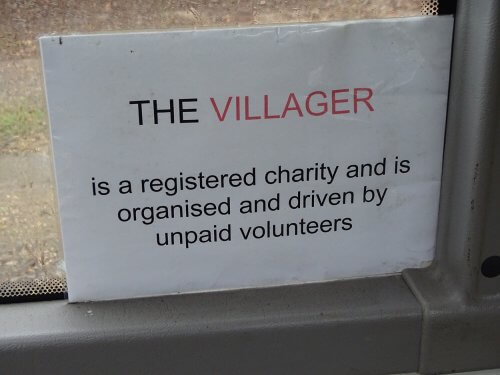
The government has responded to the consultation on the use of section 19 and 22 permits for road passenger transport in Great Britain.
The Government’s “Consultation on the use of section 19 and section 22 permits for road passenger transport in Great Britain” closed on 4 May 2018 and sought views on:
amending existing domestic legislation to provide greater legal certainty as to how it fits with the Regulation;
the introduction of an exemption for national transport operations with a minor impact on the market because of the short distances involved; and
draft guidance as to the interpretation of the exemptions from the Regulation to illustrate when the exemptions might apply.
In response, Nusrat Ghani MP, Parliamentary Under Secretary of State for Transport said the government would be publishing a framework for decisions on a case-by-case basis about whether operators are exempt from the EU regulation on operator licensing.
Non-Commercial Exemption
The responses to the consultation highlighted that there was no general consensus amongst stakeholders concerning how the non-commercial exemption should be interpreted.
Opinions were divided between those who thought that ‘not-for-profit’ meant ‘non-commercial’ and those who thought the regulation should apply to all operators to ensure equal opportunity.
Concerns were raised over the requirement for all services to be provided either free of change, or substantially less than cost, except when community transport operators were able to provide evidence of no competition within the market.
The text preventing an operator from raising income through occasional private hire of vehicles was highlighted as being a major issue for many community transport operators.
The draft guidance on non-commercial exemption was not generally supported, however the government noted they would be making no further statement or providing guidance on the ‘non-commercial exemption.’
Main occupation exemption
The new guidance on main occupation exemption states that an operator’s engagement in road passenger transport must be ancillary or complementary to another activity which must be their main occupation.
Based on further legal advice obtained by the Department, now, organisation’s constitutional documents, whilst considered relevant alongside other information about the time and resources spent by an organisation on non-road passenger transport activities, are not on their own sufficient to determine an organisation’s main occupation.
The main occupation exemption also ensures that those organisations providing community transport services alongside their main social and charitable activity will be protected.
The new guidance also sets out the factors that a permit issuer should take into account when considering if an applicant satisfies the exemption (e.g. statement of all sources of income and amounts received).
Short distance exemption
Based on consultation responses and in line with the Government’s desire to see locally based community transport operators continue to provide services to their local community, the Government noted that it intends to implement the short distance exemption for the benefit of ‘not-for-profit’ organisations.
In terms of determining what quantifies as a ‘minor impact’ on the transport market, the Government said that the minor impact needs to be linked to the ‘short distance’ travelled and that, in this context, all services within a specified ‘short distance’ will be judged to have a minor impact on the market and the exception would only apply for ‘non-for-profit’.
The government decide that the legislation would automatically recognise a ‘short distance’ as:
Any service within a radius of 10 miles, measured from a central point; or
A distance of 10 miles measure in a straight line from the first point at which the passengers are able to embark to the last point in which passengers are able to disembark.
The operators in rural areas however, would be able to make a case that a ‘short distance’ is longer than the automatic 10 mile distance.
Review of the section 19 and 22 permit system
In light of the fluctuating nature of the community transport sector, the Department intends to carry out a review of the current domestic permit regime in 2019, in order to see if it still functions effectively for the bus sector as a whole.
This will consider whether there should be limits on the size of operations.
Bill Freeman Chief Executive of CTA said in a statement: “The Government’s consultation response and draft guidance are another step towards concluding this unsettling challenge for the community transport sector.
It certainly appears that the quality and range of arguments made by many organisations, including ourselves, during the consultation have been listened.
It also brings a settlement for those charities who have transport as ancillary to their main activities.
“The emphasis on treating every case on its own merits and allowing a degree of discretion for local circumstances are to be welcomed and we hope this carries through into how the non-commercial exemptions are treated, once the High Court has reached its view.
We are also pleased to see the Minister restating very clearly that it would be premature for any local authority to end or withhold community transport contracts.”
Read more bus news here: cbwmagazine.com/category/news/buses

